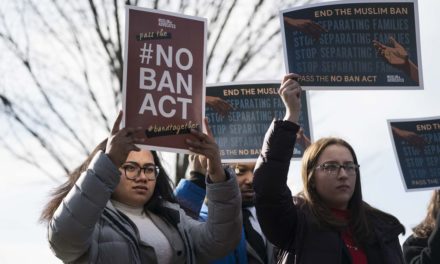It’s no secret that Saudi Arabia severely restricts and represses women’s rights – but that may all be changing under Crown Prince Mohammed bin Salman’s vision. In August, Saudi Arabia introduced new reforms that would allow women over the age of 21 to receive passports without a male guardian present. Described by many as a historic leap for Saudi Arabian women, the reforms are part of a wider plan to boost the country’s national image and attract tourism.
However, according to campaigners, the reform is littered with loopholes. One of which concerns the concept of ‘taghayyub’ which means ‘absent’ in Arabic. Under this provision, male guardians can still file a police complaint if their female relative is missing, which ultimately could lead to arrest or detention in a women’s shelter. Human Rights Watch (HRW) have said that these shelters are run similarly to detention facilities with no idea how many women can be held. Despite the new reforms, guardians can still use this practice to constrain women who want to leave home.
And it doesn’t stop there; there are still countless barriers when it comes to female travel. Male guardians can file a court order to restrict travel, another route that can lead to imprisonment. If a woman is arrested or sent to a shelter, she would still need her guardian’s approval to be released. While it seems like the power is finally being transferred to women, it seems as though male guardians will continue to exercise their rights to oppress, coerce and tyrannize women under Saudi Arabian laws.
Ulterior Motive?
Allowing women to obtain passports without male approval isn’t the only ‘reform’ the Crown Prince is introducing. Last year, Saudi Arabian women were finally allowed to drive cars – lifting the only ban on women drivers in the world. Recently, Saudi Arabia also announced that it would allow women into the army while also foregoing its strict dress code for non-Saudi female tourists.
However, amongst all of these reforms, Saudi Arabia continues to imprison its women’s rights activists. Many activists are either on trial, detained or face travel bans simply for protesting according to Amnesty International. Some women have reportedly been severely abused during their detention including torture and sexual abuse.
In addition, the death of Washington Post journalist Jamal Khashoggi last year also strained the nation’s global reputation with several media companies deciding to boycott this year’s Future of Investment Initiative conference.
With this context, these new reforms begin to feel flimsy in nature and only a means of deflecting from Saudi Arabia’s vast human rights abuses. Until the practice of male guardianship is completely dismantled, no reform will pack the weight it should.
While Saudi Arabia tries its hardest to rebrand, it becomes only that much more difficult to forget the widespread abuse the country is responsible for.
Photo Credit: iNews
- This Artist is Making the Underwater Arena His Canvas - 28th April 2021
- A Video Game that Promotes Peace and Conflict Resolution - 15th March 2021
- Netflix’s ‘Living Undocumented’ is a Difficult Series to Watch, and Exactly Why We Should - 9th March 2021






